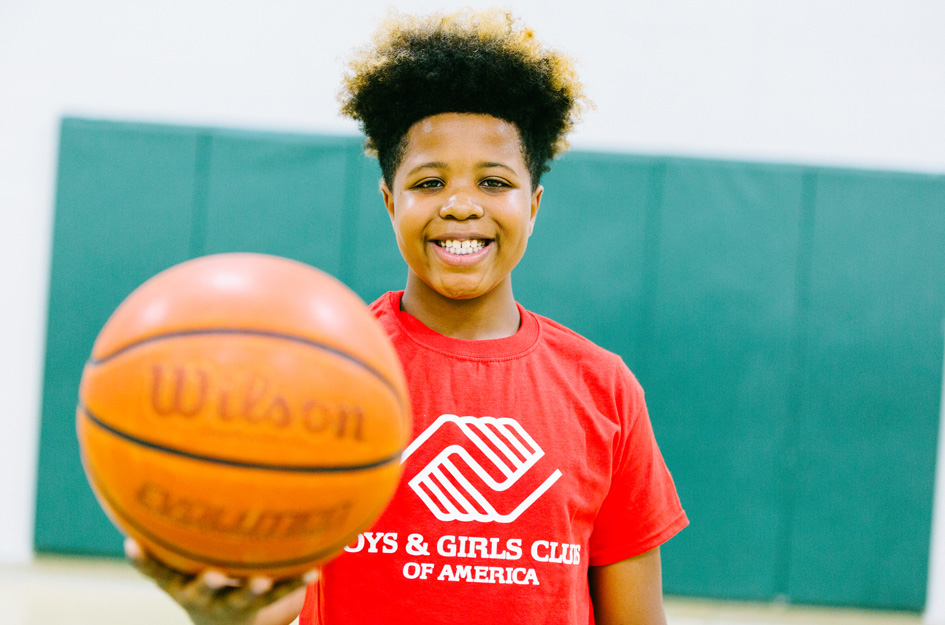
The Importance of Goal-Setting for Teens
Goals give us something to work toward, purpose to keep us motivated and – with a little luck and a lot of hard work – something to celebrate.
Learning how to set goals is a vital skill for young people. After all, it’s hard to get somewhere without knowing the destination you’re heading to. Goals help teens focus on the journey to whatever they want to achieve, helping them to make plans, use their time and resources wisely, and identify the places where they may need some help.
Every day at Boys & Girls Clubs, teens consider new ways of planning for their futures, getting involved in their community and creating fun opportunities for their peers, all of which involve short-term goals and long-term goals to bring ideas to life. Caring adult mentors and innovative programs at the Club help them get a head-start on anything they can dream.
Why is it Important for Teens to have Goals?
For teens, learning how to set goals has many benefits, such as:
- achieving the desired end result (the ultimate goal of any goal!)
- increasing self-confidence throughout the process
- understanding and developing their work ethic
- learning what works best to motivate them
- building their perseverance when things don’t go as planned
- learning when to ask for help or support
Setting goals helps teens put action behind their ideas. These skills will serve them well personally, in school and in the workforce.
How to Set a Goal: What Are SMART Goals?
Coming up with a goal is easy, but creating an action plan to reach it can be challenging. SMART goals are a way to write goal statements that include the actual steps that you need to take to achieve the goal.
“SMART” is an acronym to help guide the goal-setting process. (And the good news is people all ages can use SMART goals!)
Goals should be:
- Specific: The goal does not need to be broad – it needs to be specific enough so that teens can focus their efforts and clearly define what they are going to do.
- Measurable: The goal should be measurable. When they can measure a goal, they see changes occur. Youth will also be able to stay on track and have better success.
- Attainable: The goal should be attainable. If they set a goal that is too far out of their reach, then they will not commit to it for long. Attainable goals help develop attitudes, abilities and skills if they are important.
- Realistic: The goal should be realistic. Set the bar high enough for a satisfying achievement. It must require some effort.
- Time-bound: The goal should be achievable in a reasonable amount of time. Short-term goals can be broken down into actions to achieve over a short period of time. Long-term goals can be broken into time-based short-term goals over a longer period.
When thinking of the goal they want to achieve, teens should check that it’s a SMART goal, meeting the criteria above. Then, it’s time to consider how they will measure the goal and within what time frame.
How to Teach Goal-Setting to Teenagers:
Ready, set, goal! Now that you know about SMART goals and the benefits of goal-setting for teens, here are five ways to support teens in their goal-setting efforts:

Model what goal-setting looks like in your life.
When your teen sees you set goals and work to achieve them, it’s one of their most direct ways to experience goal-setting. Be open with them throughout the process, share what steps you’re taking to achieve your goal and be candid about setbacks and changes. These conversations can be casual, but they show how much work you’re putting in that your teen may not realize you’re doing, helping your teen understand how something is earned with time and effort. An added benefit is you may find you have an accountability buddy or cheerleader in your teen as you tackle your own goal.
Some examples of goal-setting that adults can model for teens might include:
- Making a plan to find a new job
- Implementing a new healthy habit, like journaling or getting enough sleep
- Sticking to a budget to save toward something
- Helping out or leading a neighborhood or community initiative
- Working toward participating in a larger event, such as preparing for a 5K run
- Learning how to do a new skill
- Creating time to connect with friends, family and neighbors

Make a plan.
Once they’ve decided on a goal to work toward, your teen should make a plan for how to achieve it. Writing it down often helps make it feel real and gives your teen a sense of accountability. A goal plan should include:
- What the goal is
- The desired end result
- Measurable milestones along the way
- Steps to take between each of those milestones
- A timeframe to achieve the steps and the ultimate goal
- Any help they may need – things like supplies or transit, practice or feedback, etc.
- Any accountability they want (and from whom) – how do they want to check in on their progress?

Let teens lead the way.
The best goals for teens are the ones teens pick themselves, plan for themselves and go after themselves. Self-driven experiences are often the most motivating and the most rewarding, with plenty of lessons to learn along the way. This is especially critical for teens who have a deep desire to be independent (and in a few years, will be).
Let them steer their goal-setting process, from choosing a goal to working toward achieving it (and adjusting their course when things don’t go as planned). Along the way, they’ll pick up life skills and experiences, including hopefully knowing the satisfaction of a job well-done once their goal is reached. As their support system, check in from time to time on how their goal is going or be their sounding board when they’re experiencing a setback, but otherwise lean out and let teens lead the way.

It’s OK if the goal changes.
Today’s kids have a lot on their minds and busy schedules across academics, social life and more. It’s OK if their goal changes. They may realize halfway through that they need more support or time than they anticipated, they feel overloaded with too many priorities, or that there is actually something else they’d rather be doing.
We’ve all experienced this at some point when working toward something. In the end, it’s far healthier for your teen to acknowledge what’s going on with them, share why something isn’t working and how they’re feeling about it, and make a plan to reset – instead of continuing to stress out over something because they feel they need to, that you are expecting them to, etc. However, if you find your teen consistently abandoning goals, dig into why that’s happening with them and consider the SMART goals framework again.

Always celebrate when a goal is achieved.
In a busy world where we often maintain a rapid pace, it’s never been more important to take time to celebrate. Ensure your teen takes time to celebrate a job well done, and as the adult in their life, be sure to model this in your every day. Since SMART goals have measurable milestones, be sure to notice and celebrate when a milestone is achieved, and go all-out celebrating achieving a long-term goal.
Setting Short-Term & Long-Term Goals – Goal Ideas for Teens:
Examples of short-term goals for students might include:
- Start and maintain a new habit, such as exercising or writing in a journal.
- Create a morning and/or evening routine that sets you up for success.
- Open a savings account.
- Clean and organize your spaces.
- Find a mentor who can help connect you with opportunities.
- Study to increase your score on a test or subject.
- Read a certain number of books that month and/or year.
- Volunteer for a day at a cause in your school or community.
- Create a resume.
- Try a new skill, sport or hobby and see if it’s something you’d like to pursue.
Examples of long-term goals for students might include:
- Work toward graduating from high school on time.
- Commit to a long-term project such as planning a community/team event or starting a new hobby or initiative, like learning to sew or starting a podcast.
- Study for and take a driving exam to earn a license.
- Learn a new language.
- Join, start or take on a leadership role in a club or extracurricular activity.
- To explore future careers, take on an internship, part-time job or job-shadowing opportunity.
- Apply to college and/or create a plan for life after high school graduation.
Goals help teens make a plan and go after it, building skills that will last a lifetime. Learn more about how Boys & Girls Clubs support young people in developing character and citizenship to be active contributors in their communities.
Stay in the Know
Boys & Girls Clubs of America provides mentorship, programs and meaningful life experiences that boost youth self-esteem, build confidence and contribute to overall positive and healthy wellbeing. Sign up for our newsletter to receive the latest resources and stories.